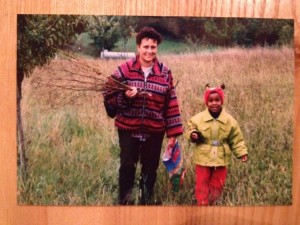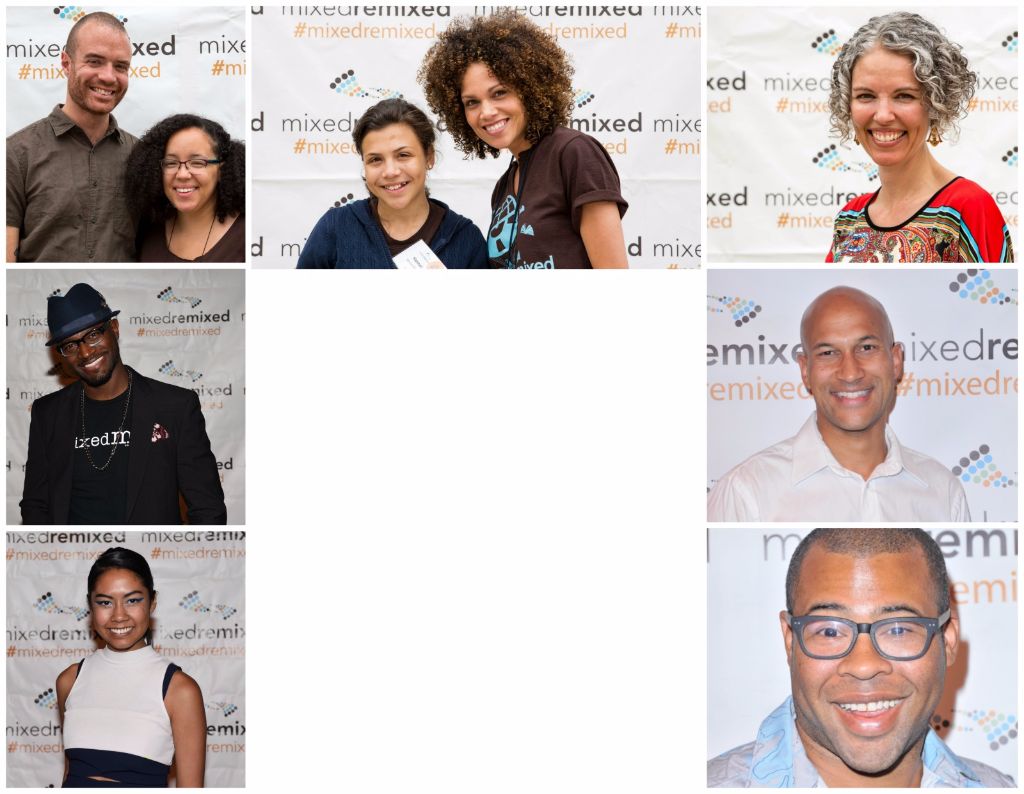How important is identity to you, be it racial identity, cultural identity or even national identity?
The following is an interview featuring one of my very good friends, Feli, who was adopted by a loving but barren couple at the tender age of 12-weeks (1995). She tells all: growing up black in Southern Germany, dealing with negativity but also with love and her advice for kids just like herself. Enjoy!
1. Tell us a little about yourself: where were you born, where did you grow up and do you have any siblings?
F: I was born in St.Lucia, in the Caribbean and grew up here in a little Bavarian town outside of Munich, Germany. I also have an older brother, my brother Finn (we were both adopted by the same parents) and then two younger brothers after Finn.
2. Did you notice, even as a little girl, that your family was a little bit different? Were topics like Heritage, Race, etc. often discussed in your family?
F: I actually didn’t notice any difference. Due to the fact that I came to Germany as a 12-month-old baby, it was all I knew, it was therefore normal to me. I would even say that I was raised as a German or even like “a white girl”. For me, it was pretty normal that I had 4 parents and my being black and their being white was also normal to me because they never treated me as their adoptive child but rather as their own. I think that’s the reason why it was so normal for me. Topics such as race, were actually never really discussed in our household.
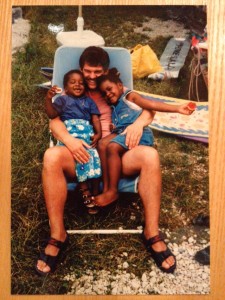
3. How old were you when you found out that you were indeed adopted – and was it difficult to come to terms with? Have you ever tried contacting your biological parents?
F: The fact that I was adopted… I actually knew this from the beginning. It was never like anyone tried to hide this from us. They let us know from the beginning that they had adopted us and that we weren’t their biological children. And this was actually very OK for me, I do remember asking, “why?” but once they explained everything to us, it was OK for me. Yes, I do have contact with my parents in St.Lucia – we Skype, we talk on the telephone – we have a pretty good relationship. I even visited them a few years back and it was quite nice seeing everyone.
4. Did you have lots of problems in your childhood because of the way you looked? Or were you even bullied for it? How did this make you feel?
F: In elementary school, I can’t say that I had any problems, however, as I moved on to High School, I did get comments from distant kids who said they didn’t want to have anything to do with n*ggers. Although comments or behaviour like that were rare, it did happen at least 6 or 7 times. In the earlies, I felt very sad and hurt but the more I was confronted, the less it would bother me and I would just think to myself, “Well screw you guys, too!” and eventually I could just laugh about it. As I’ve gotten older, the behaviour or problems I face are more of a sexual nature, where certain people think it’s OK to treat me a certain way or say any old thing and get away with it.
For the following question, I actually included the German term, “Andersaussehende” which is the plural form of a word that, to be honest, does not exist in English – or is at least not in my 20-year-old vocabulary. It simply means “Different looking” and although, to an English speaker, this may seem like a strange term to use, it’s fairly normal in Germany. It doesn’t have to be perceived negatively or even offensive, it simply means “someone who looks different” – different than the norm, different than what we’re accustomed to.
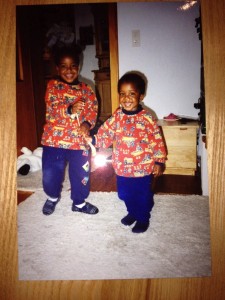
5. Nowadays, there are lots of stereotypes against foreigners (or “different lookings”). What annoys you most when strangers approach you or people in general, and ask you about your Heritage or try to make “black” jokes.
F:
As a black person, you’re immediately spoken to in English and get asked questions like, “Awww, well where you are from?!” and are treated like a little monkey in a zoo – that, I cannot stand! I personally don’t have a problem with “black” jokes because a lot of my friends make black jokes or even call me the N-word, but it’s purely out of fun and I’m cool with it. However, when a complete stranger who does not know me, starts with black jokes or calling me n*gger from the beginning then that person can expect a slap.
Additionally, it is not uncommon that you will be questioned about your heritage and country of origin if you’re “andersaussehend” and living in Germany. Again, most people don’t mean any disrespect with these often personal questions – they’re really JUST THAT curious. I often feel as though, every Native-born (and even the not-so-Native-borns) think it’s their duty to know where each person is from and what they may be doing in their country.
7. Is this topic a particularly important one for you, as it relates to Heritage, Homeland and Culture?
F: “Home” is actually quite important to me and usually when I get involved with a guy, they usually do ask the typical questions but once I tell them my story, it’s cool and the topic is settled. It was also just out of curiosity, so I never had reason to be offended or hesitant. All of my friends knew that I was adopted but the fact that I speak German and particularly, “Bayerisch” made it all easier so I never really had any problems to “fit in” because it was just totally normal for me.
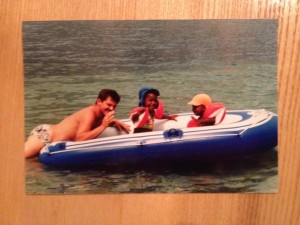
8. Who is Feli? Tell us a bit about yourself: what have you learned in these years; how do you identify (as German – a typical Bavarian girl?)
F: I don’t think that I’m Bavarian. I do think that as a black person in Bavaria, it is possible to make a name for yourself, especially if you speak in the Bavarian dialect. So I definitely think it’s possible to identify here, it’s just that I don’t feel 100% German. There are just so many qualities that most would say is typical of a German, that I don’t necessarily have. I’m quite a relaxed person and don’t let things stress me as much as the average German might. In the past years, I’ve learned not to care too much about what other people think about you, because you know who you are better than anyone else anyway. Don’t let anyone tell you what you should do, you should go your own way and if anyone insists on throwing rocks over your way, just step over them and continue as you were.
Any advice for young people who are perhaps going through the same things you once did (being “different” in Germany)?
F: The most important thing I can say to kids with a similar story to mine is: Never lose sight of your goal, everything else is just a distraction.
Don’t let yourself get in your way and know that being “different” in Germany is better than just swimming with the current – even as a general rule. It’s always better to swim against the tide and even if the situation gets really tough and you feel alone and you can’t seem to see a way out, don’t hang your head. You just have to say to yourself, “these may be some crappy times but I will get over this” and some way, some how, you will see that you made it through.
I’ve honestly just realized that I’m a very direct person and once I do things the way I want to do them it all works out. It’s still very important to be mindful of the others around you, but the most important thing has to be for you to be doing your own thing and it doesn’t matter if you’re German, Indian, Turkish, African or whatever.
This Interview was originally conducted in German.
Mixed Remixed thanks Feli, for sharing her very wonderful story with us!
By Theresia “Terri” Rogers
Find me on YouTube:
https://www.youtube.com/channel/UCou-DtmhXQ6chUqHYz1A6vw
